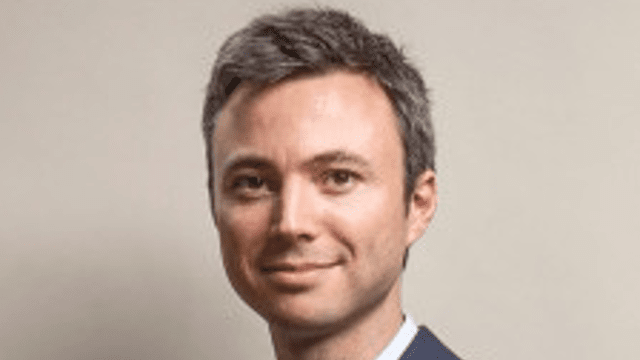JOURNEY
Alexandre Grux is a former graduate of ENS Paris-Saclay. He obtained his diploma in 2008.
He co-founded the start-up Hyperlex in 2017 with Alexis AGAHI, a graduate with a master's degree in computer science from ENS Lyon.
Hyperlex has developed a set of natural language processing technologies, relying on statistical analysis, deep neural networks, and supervised/unsupervised learning. Capable of identifying and understanding key information in contracts, the Hyperlex platform allows the analysis and validation of hundreds of thousands of multilingual documents in record time. Hyperlex caters to all professionals involved in contract management (lawyers, financiers, salespeople, buyers, HR, etc.).
His start-up raised 5 million euros "without much difficulty."
‘’Entrepreneurship is the ambition to put our ideas to the test of truth.’’
You created Hyperlex 4 years ago; what exactly do you offer?
Hyperlex supports companies in the digitization of their contractual processes through software developed by the start-up. It allows management with all teams: legal, commercial, financial, the construction of a contract, its monitoring, and risks. About 40% of our clients are small and medium-sized enterprises with a volume of at least 100 contracts. Most of our clients were not previously equipped or wanted to replace their management under Excel.
Similar tools have existed for 20 years, but our competitors have developed a very legalistic approach with verticals by specialty (litigation, intellectual property, etc.) for experts. These tools were not open to operational teams.
With the acceleration of companies' digitization, responsiveness in the contractualization process now involves taking into account and involving the various professions of a company. In addition, our solution provides language analysis that allows scanning and indexing all contract information to retrieve it, create reports, set alerts, etc.
Our added value is simplicity for operational teams and more artificial intelligence to interpret and index information from a scanned contract, all in multiple languages. It didn't exist, and we are still the only French solution to offer these capabilities with technologies independent of the GAFAM (acronym for Web giants — Google, Apple, Facebook, Amazon, and Microsoft).
What difficulties have you encountered?
The software sector is one of investors' favorite themes with major successes worldwide. Our project checked all the boxes. Due to our background and market approach, we had no difficulty convincing investors.
The technological aspect brought a structuring and differentiating element that was quite strong. The advantage with a technology like ours is that even being a visible player in the market, no one can copy us at first glance.
Raising funds 10 years ago would have been more difficult because there were not yet many ENS graduates creating companies. Now that many ENS graduates are known in the Venture Capitalism sector, it's reassuring for investors.
Because beyond the good idea, the important thing is the people who will carry it. Even if ENS graduates are labeled as atypical, the ENS training is recognized. Frédéric Mazella, founder of BlaBlaCar, is one of its beacons and proves that one can be an ENS graduate and a successful entrepreneur.
What did your ENS training bring to succeed in your entrepreneurial experience?
It's not easy to make the connection between school training and business activity. I would say the curiosity that naturally develops at ENS Paris-Saclay, the taste for learning and transmitting.
Transmission is a strong value in our company.
Creativity comes from a question we don't understand.
Our ability to question established things, sometimes with arrogance, which is not always well received, but it's a driving force of entrepreneurship.
Adaptation as well. We have a benevolent view of people who want to learn, more than those who have acquired truths...
We are not static creatures; we are a soft matter; it's a trait acquired in our education.
What advice would you give to a student who hesitates to embark on entrepreneurship?
Entrepreneurship is not wizardry. At the moment, it is granted nobility, and it may seem less accessible.
I believe we must remember that we experience entrepreneurship in our studies, in our research. It is the ambition to want to make our ideas, our questions concrete by putting them to the test of truth. It is a philosophy of the concrete that we share with researchers.
One should not seek perfection, the result, but get started and iterate, which has a lot of value. Perfection is created through iteration.
Working for six months in your garage to release a super machine is useless. Don't wait to start but go consult users to really understand the problem to be solved and confront your idea with the market.
To start in entrepreneurship, a PowerPoint is preferable to a machine. This is what the School does by putting students in labs very quickly. It helps because it demystifies the thing and makes it more challengable. It is one of the values of the School to show that teachers are people like us, sometimes former students very close to us, and who do research. It helps demystify research, and it's the same thing about entrepreneurship.
We must demystify what it is to sell an object. In entrepreneurship, you have to think about the purpose for the user.

Comments0
Please log in to see or add a comment
Suggested Articles


